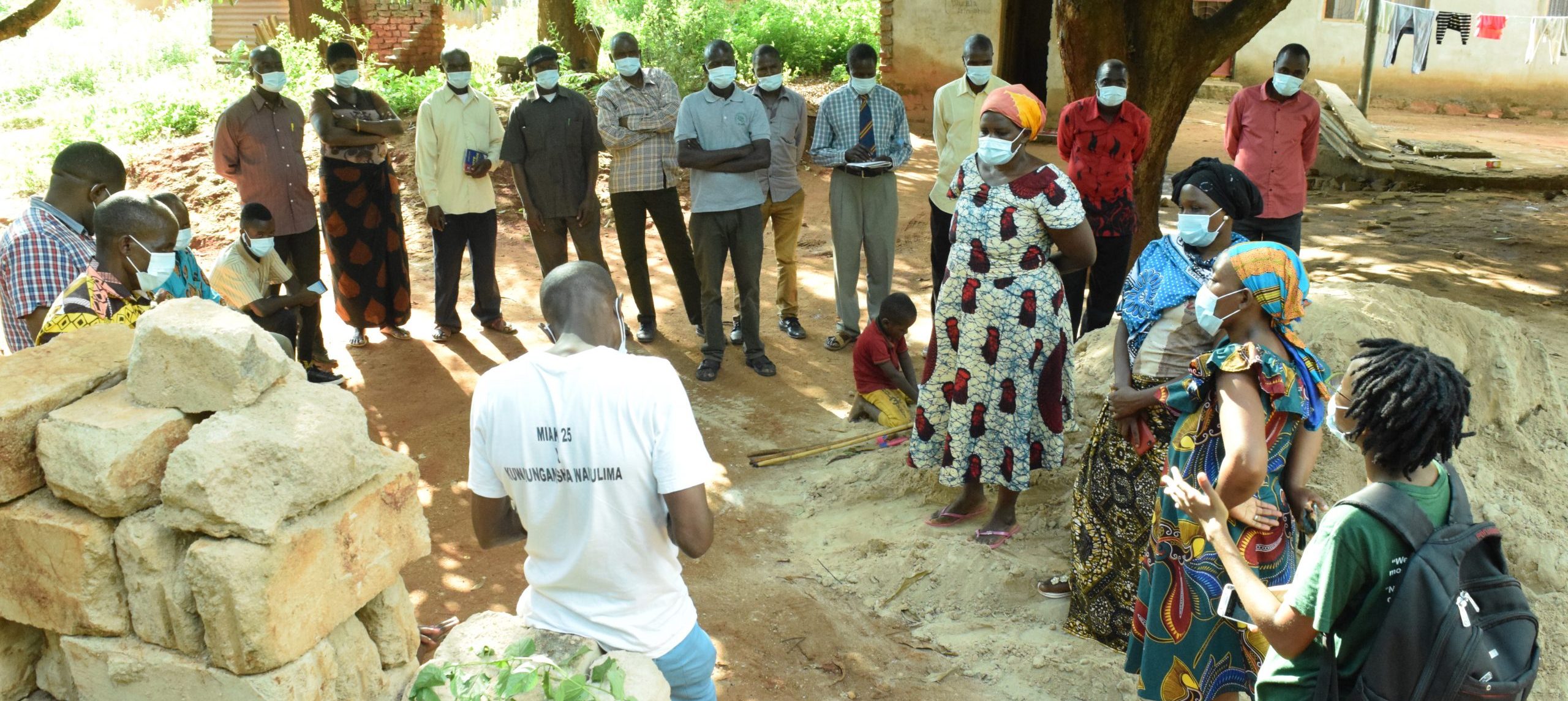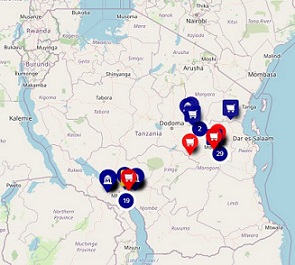Mtandao wa Vikundi vya Wakulima Tanzania (MVIWATA) effected a training and exchange visit for twenty (20) leaders of smallholder farmers from Geita, Shinyanga and Simiyu regions. The exchange visit and training sought aimed to improve the knowledge and practices of the leaders of smallholder farmers and to integrate the experience gained from the visit and training into their producer groups and networks of MVIWATA.
The aim of the training that took six days (6) for twenty (20) leaders of smallholder farmers was to equip them with the understanding of the essence behind formation of MVIWATA, its philosophy, vision, mission and strategic areas of activity implementations, it also aimed to create awareness on membership and producers groups sensitization and formation, concepts of political economy and policy and advocacy at micro levels.
Likewise a one day exchange visit to exchange experiences and discover new viewpoints and approaches of agro-ecological practices was organised whereby Tushikamane group with 24 members residing at Mzumbe ward, Mvomero District in Morogoro hosted and provided such insightful experiences and practices on agro-ecology.
During the exchange visit a Tushikamane producer group Chairperson Ms, Maria Shindika told the visitors that apart from the group’s main activity in crop production through agro-ecological practices, they are also engaged a Village Community Bank (VICOBA) which is a savings and credit financial service formed and managed by a group. She added that VICOBA has been a major source of capital in financing agro-ecological farming activities for their group and at individual level of which it has also served in paying schools fees for their children.
On giving the profile of the group Ms, Elizabeth Kaganda, a secretary of Tushikamane group told the visitors that at first members used to farm collectively through a group’s demonstration plots and they started with vegetable crops, then they diversified to sunflower, maize and rice plants of which all the crops were farmed through agro-ecological practices.
She added that later on the members of the group after having practical skills through a group’s demonstration plot turned to farm at individual farms through agro-ecological practices where some produced their crops for business while others did for their own consumption. Ms, Elizabeth also thanked MVIWATA for sensitizing them to form and skills to manage their group and also for the agro-ecological practices training of which it has enormously benefited them.
On a practical demonstrations, that made it easier to understand an idea of agro-ecological farming system and which stimulated willingness to take action. Ms, Vumilia Kadoa, a treasurer of Tushikamane group demonstrated to the leaders of smallholder farmers step by step on preparation of farms, manure and composite preparations as fertilisers, knowledge on indigenous seeds storage and on pesticides making, all these using agro-ecological practices.
Ms, Vumilia further added that despite of the methods been cost free, they are also most effective, reliable, preserves soil fertility while it as well protects the health of producers and consumers unlike the industrial modes of farming as propagated by its agents.
Beyond agro-ecological theoretical narrations effected by Ms, Vumilia, leaders of smallholder farmers paid a visit to agro-ecological mushroom farm owned by Ms, Maria Shindika by which concrete examples and understanding the farming methods were revealed of which they will subsequently be adapted and applied by the leaders of smallholder farmers’ producer groups.
Ms, Maria added that the market for her mushroom is high beyond her capacity of production by which one kilogram of fresh mushroom is sold up to 15,000/= TZS, while for a dried mushroom per kilogram is sold up to 30,000/= TZS.
Leaders of smallholder farmers were also told that the market for crops produced through agro-ecological methods is high, citing an example of spinach farmed through agro-ecological means, Ms, Maria said for a piece of spinach weighing nearly 200 grams is sold at 1000/= TZS while those farmed with industrial chemicals and fertilisers is sold at 300/= TZS up to 500/= TZS.
While concluding Ms, Theodora Pius, MVIWATA training officer thanked the hosts for their tremendous and remarkable example for their group’s activities and their agro-ecological farming systems.
She further stressed that in order to sabotage a capitalist system through its agents which has exploited and killed millions of smallholder farmers worldwide and that comes in many forms such as commercial industrial seeds and industrial chemicals and that turns smallholder farmers into slaves in their own land, smallholder farmers have to remain firm and in solidarity through sharing their indigenous knowledge and seeds that will finally demolish the market for capitalist systems’ products.
Ms, Theodora urged leaders of smallholder farmers from Shinyanga, Geita and Simiyu to use the knowledge gained to their producer groups by establishing groups’ demonstration plots for realization of the agro-ecological farming methods, and this task will be monitored for further smallholder farmers trainings and exchange visits.
“THE DEFENDER OF A FARMER IS A FARMER”







